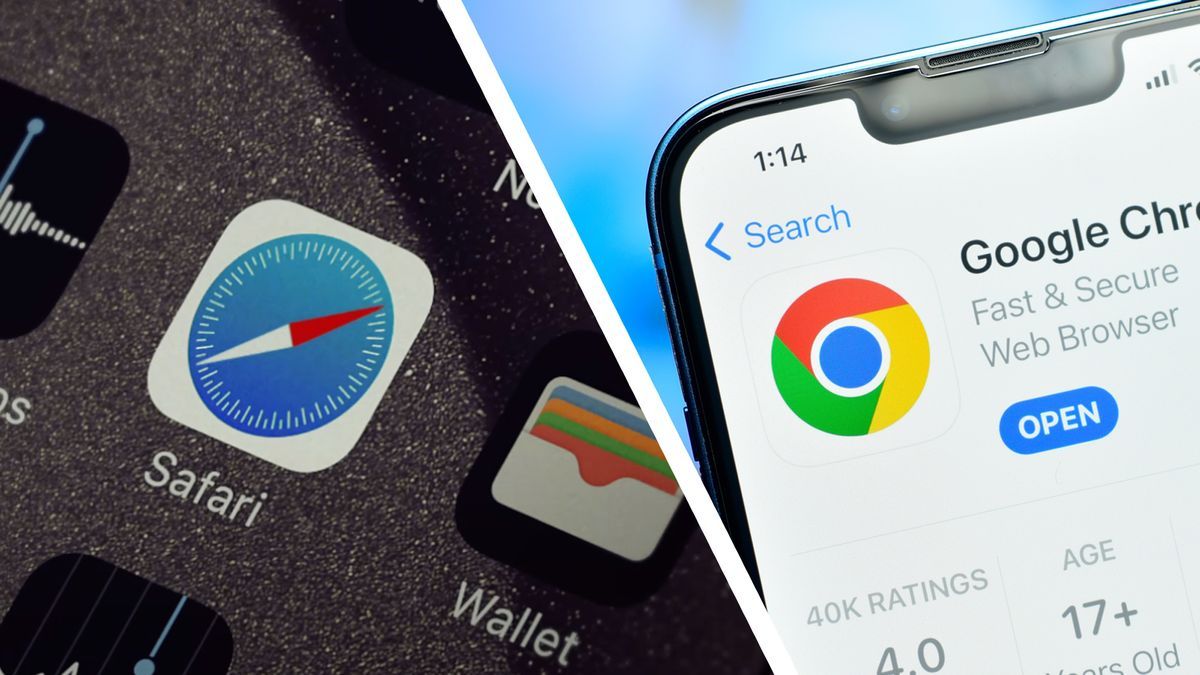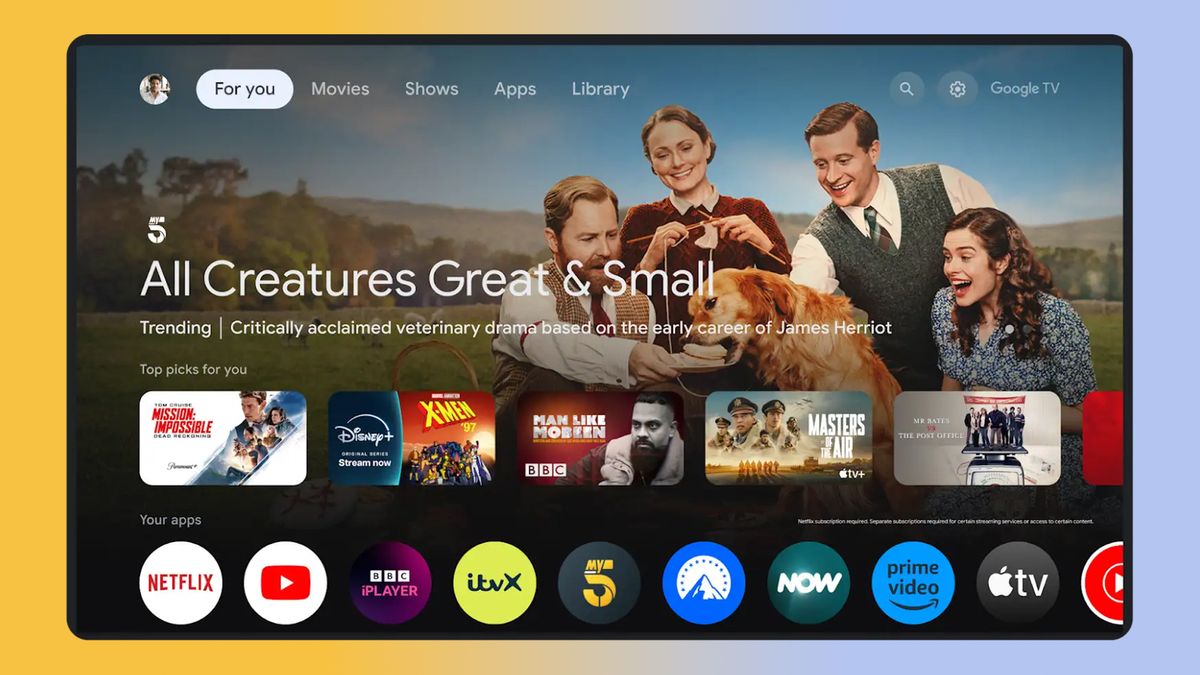This week, Apple adopted some interesting tactics to convince iPhone owners that they should use Safari on iOS, including scaring them with a new Black mirror-video ad style.
The 'iPhone Privacy' video shows people using anonymous web browsers surrounded by flying security cameras that monitor their every action. “Your browsing is being watched,” it warns in a dig at Google Chrome.
Apple had already called Android a “mass tracking device” in an internal filing that emerged during an antitrust trial against Google last year. However, while Chrome is not mentioned in the announcement, the browser is undoubtedly its main target.
Is the ad accurate? Does Safari offer huge privacy benefits over rival iOS browsers like Chrome? Should you switch browsers? Here's all about it, including an analysis of why Apple is launching this campaign now…
The Claim: Apple's new ad says “your browsing is being watched, Safari helps you stop it”
See in the
This week, Apple released a new ad (above) with the tagline “Your browsing is being watched.” The video shows scenes of flying security cameras and, later, robot bats spying on unsuspecting people as they browse the internet on their phones.
The scenes become increasingly sinister: a man throws his phone overboard from a boat and a multitude of security cameras descend on a woman. Fortunately, she knows how to destroy the cameras instantly: by tapping Safari on her iPhone. The ad ends with the line “Safari. A browser that's truly private.”
There's no explicit mention of Google Chrome in the announcement, but it's clear what Apple is referring to: Chrome currently has a 67% share of mobile browsers, compared to Safari's 23% (according to StatCounter).
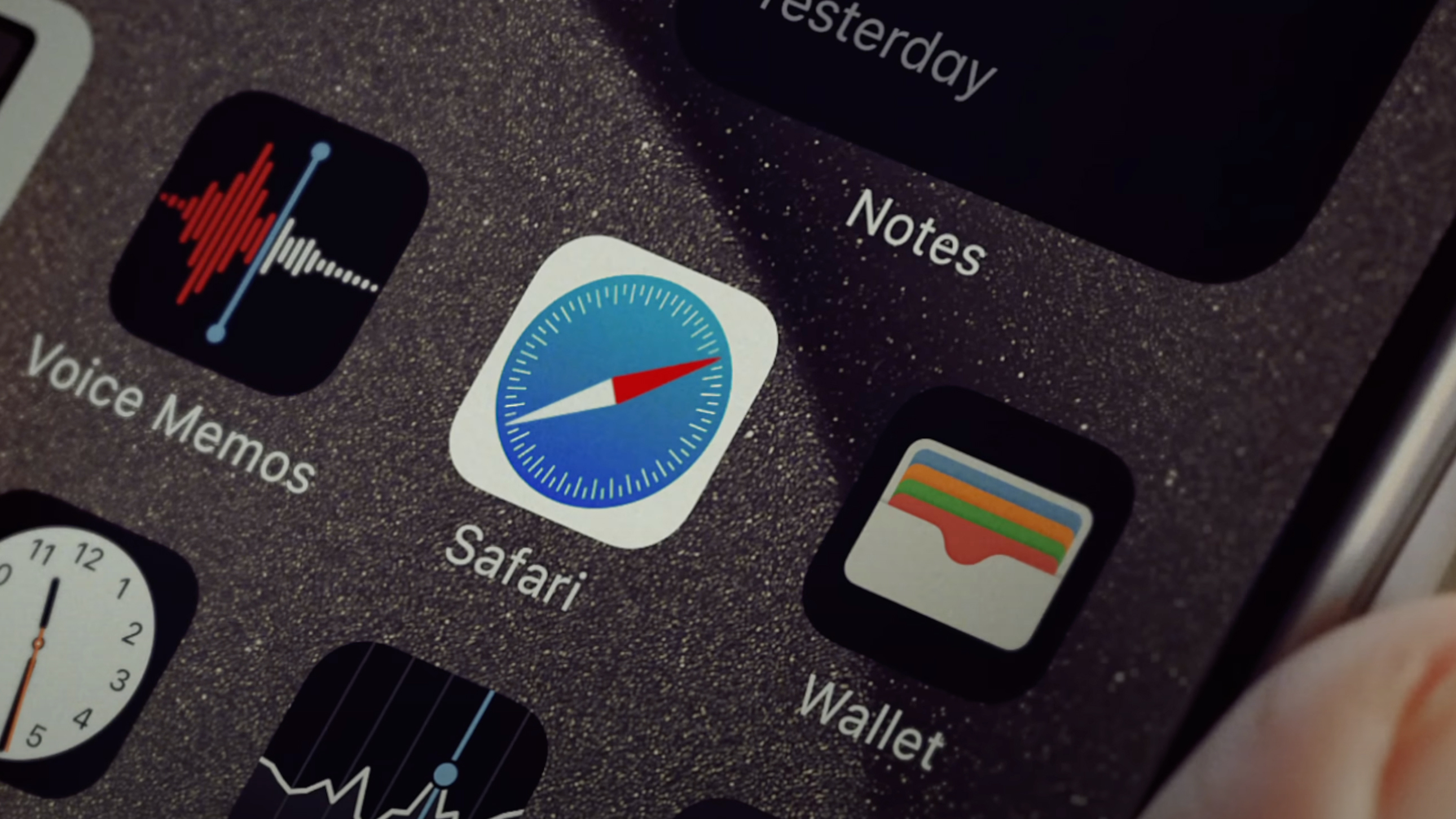
While Chrome is the world's most popular browser, it's not without its critics. The two main ones are its default use of tracking cookies and its seemingly limited incognito mode. Apple is pretty adamant about the latter in a WebKit blog post accompanying its new announcement.
The post states that “Apple believes that users should not be tracked across the web without their knowledge or consent. Entering private browsing mode is a clear signal that a user wants the best possible protection against privacy invasions, while still being able to enjoy and use the web. Maintaining the 2005 definition of private mode as something ephemeral, like Chrome's incognito mode, simply isn't enough anymore. Users expect and deserve more.”
So, is Apple right? And what does all this mean when it comes to choosing the best web browser for your iPhone?
The reality: Safari is more privacy-focused than Chrome, but that's not the whole story
In general, Safari on iOS puts a greater emphasis on privacy than Chrome, but it also can't completely prevent third parties from collecting your data, and mobile web browsers are also constantly changing, which explains the timing of Apple's announcement.
It's helpful to understand that backstory. Until this year, iOS web browsers were less distinct from their desktop counterparts, because Apple forced all of them (even Chrome) to be built on WebKit, which is the browser engine that Safari uses.
However, the EU’s recent Digital Markets Act (DMA) means that, at least in that region, Apple has been forced to allow third-party web browsers to use other engines, such as Blink. In theory, this means we could soon start to see browsers like Chrome offering something closer to their full desktop experience on iPhones, which could change the landscape and also convince some Safari users to switch.
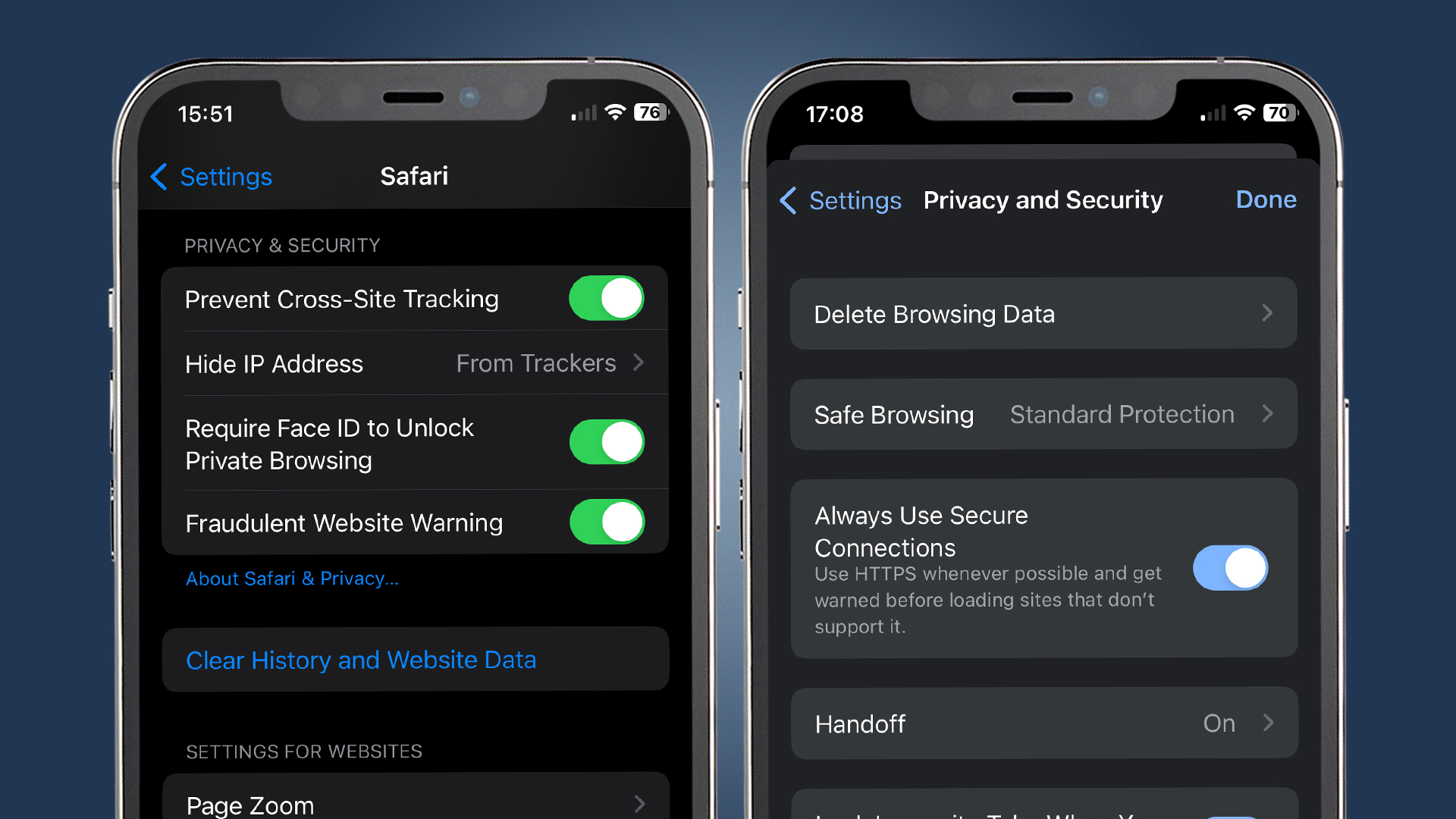
But that’s not all. The DMA requirements also meant that, starting with iOS 17.4, iPhone users started seeing a selection screen when they first opened Safari, allowing them to choose their default browser from a list. This is another threat to Safari’s dominance on the iPhone, as some smaller browsers like Brave reported a huge spike in downloads when that feature was rolled out in March.
All of this helps explain the timing of Apple’s announcement. But is Apple right when it comes to privacy in Safari? In general, Apple’s browser has stronger privacy features enabled by default than Chrome. Since 2017, Apple has made Intelligent Tracking Prevention (ITP) a staple of Safari and WebKit, meaning the feature’s cross-site tracking restrictions have also affected the iOS version of Chrome (which, for now, is based on WebKit).
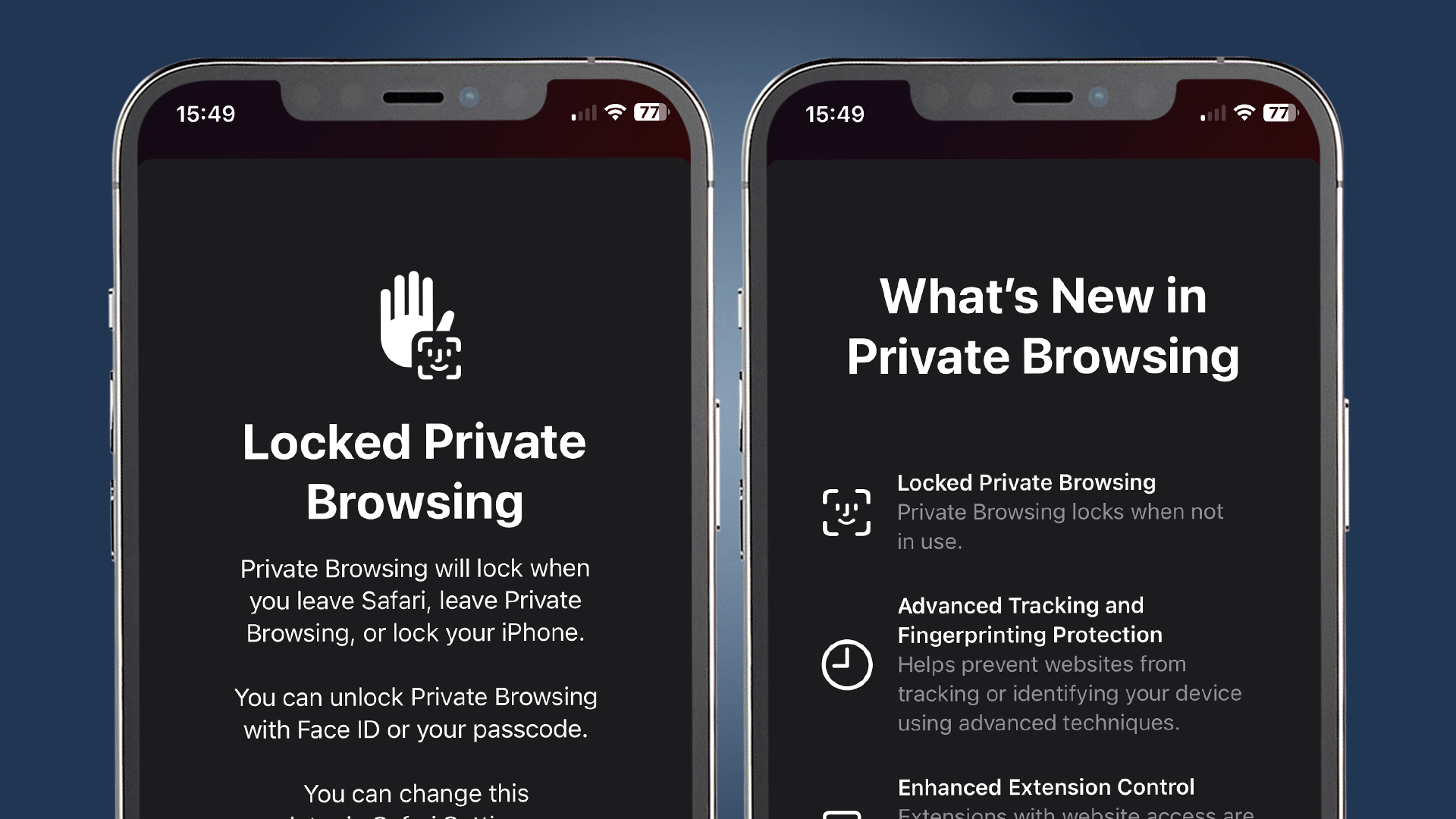
While it is possible to improve your privacy in Chrome, some of its features, such as incognito mode, are also not necessarily as powerful as their Safari equivalents.
For example, Google was forced to admit in a class-action lawsuit in 2020 that your data is still collected in Incognito mode. Safari’s private browsing mode (tap the two squares in the bottom right corner, then swipe to “Private”) also isolates your browsing into different tabs, while Chrome aggregates each tab into the same session, meaning you have to close all Incognito tabs to keep your data private.
Safari's private browsing mode is more powerful in other areas, too. Extensions that access websites are now disabled by default, and “search suggestions” are only generated on-device. You can also turn on “Locked Private Browsing” by going to Settings > Safari > Privacy & Security > Require Face ID to Unlock Private Browsing, though there's an option to do this in Chrome's settings as well.
While it's possible to improve privacy in both Safari and Chrome, Apple's browser offers stronger protections by default, if that's the main thing you're looking for in a browser.
The verdict

If you're on iOS and privacy is a priority when choosing a web browser, Safari is a good choice and probably a better option than Chrome. While both are (currently) based on the same WebKit engine, Safari's features and default settings lean more towards privacy than its Google equivalent.
That said, Safari isn’t a gold standard for privacy either, and there are alternative options. On the desktop version, we recommend using a VPN alongside Safari for maximum protection, and the same goes for iOS. Check out our guide to the best VPNs for iPhone for some options, such as NordVPN (our current top pick).
We're now also seeing some interesting new privacy-focused browsers appearing on iOS. Arc Search has AI-powered features like “Browser for Me” and robust privacy settings. These allow you to block ads, trackers, and GDPR cookie banners on all websites, though it's not clear whether the app actually disables cookies in GDPR banners or just hides them.
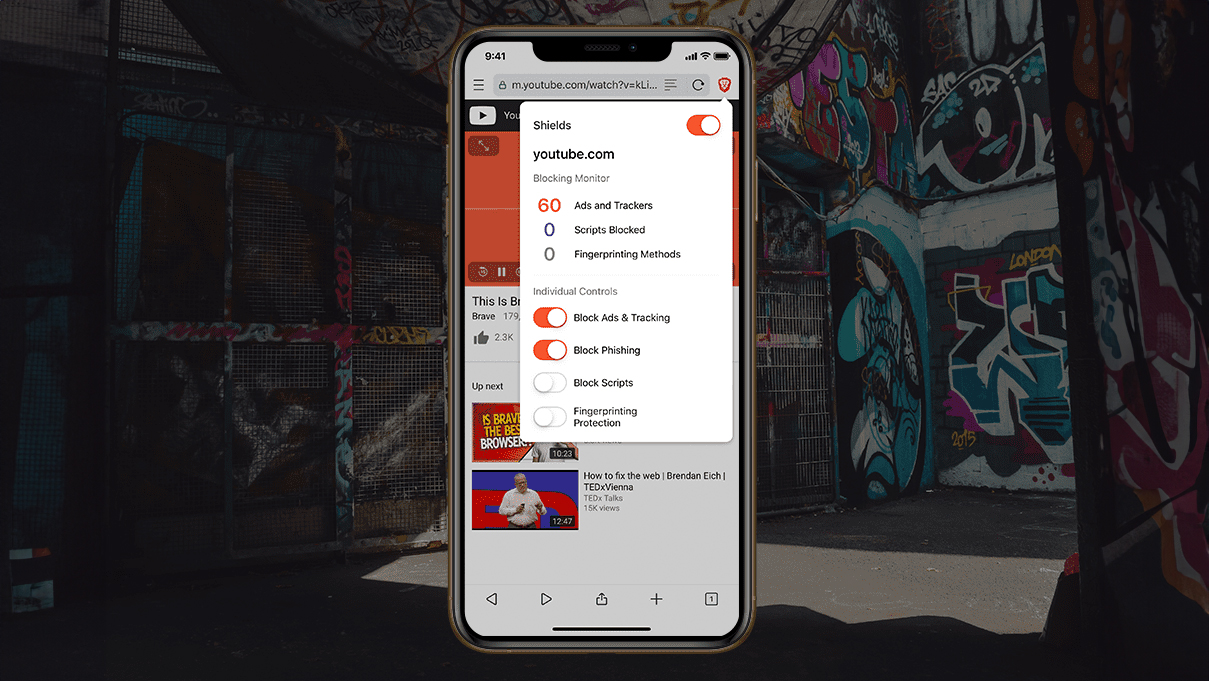
Another privacy-focused alternative worth trying is Brave (above), which now has an iOS version. Its most powerful privacy tools, such as ad blockers, are enabled by default, so there's no need to dive into its settings with a snorkel, and there's the option to add a (slightly pricey) VPN with a subscription.
Our first review of Brave called it “a great alternative to the most popular (but data-hungry) services out there,” though “it’s not a perfect product, as the ad blocker sometimes forgets to do its job.”
On the other hand, it's also perfectly reasonable to prioritize features other than privacy when choosing your web browser, and if that's the case, you shouldn't rush to switch from Chrome on iOS. If you use Chrome on the desktop, you can sync your bookmarks across devices, while Firefox lets you do the same with tabs.

